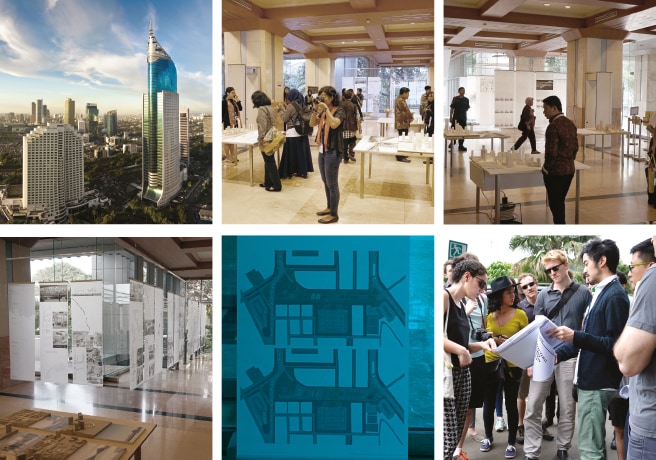Immersive, innovative and inspiring
When it comes to shaping our cities for the future, the partnership between Harvard’s Graduate School of Design and AECOM is providing inspiration for a new generation of urban designers writes reporter Sami Sibelius.
Jakarta is on a fast track to the future. The Indonesian capital is the largest city in Southeast Asia, growing at an impressive rate, and singled out as the world’s top emerging city according to a ranking by global management consultant A.T. Kearney.
A by-product of this rapid growth is that Jakarta is also infamous for traffic congestion. Among the latest changes being initiated by the city for its transformation, is the construction of its first mass rapid transit (MRT) line. The initial two phases will consolidate the north-south corridor through the city, opening up development opportunities to accommodate and improve the quality of life for the 30 million citizens.

The experience and consequences of this rapid growth, the challenges of mobility, improving public space and finding innovative ways to steward future development have formed the focus of a new urban design studio in the city run by the Harvard Graduate School of Design (GSD). Following a successful three-year partnership between Harvard GSD and AECOM that was focused on China, the new Jakarta studio takes the program into Southeast Asia for the coming three years, with AECOM helping to shape the study content and also acting as sponsor, host and facilitator.
“Cities are like jigsaws — with a multitude of diverse yet interdependent pieces,” said Sean Chiao, President of AECOM’s Asia-Pacific geography. “These studios are conceived to bring together key stakeholders and help develop solutions that are rooted in the locality, respond to specific local issues and, equally importantly, look at the broader picture. At the same time, our vision for the program is about sowing the seeds of thought leadership, forming the collaborative networks of stakeholders, and engaging the next generations of top talent in urban, landscape and architectural design on the real challenges impacting the world.”
The first studio project was a week-long student study trip around the city in spring 2016. This gave the 13 students and two faculty members opportunities to meet with urban specialists from AECOM and teams involved in the implementation of the MRT and surrounding urban development to better understand the character of the city and its future needs.
Among the first outputs of the studio was the 2016 exhibition — Jakarta: Models of Collective Space for the Extended Metropolis. The exhibition, staged at Jakarta’s City Hall, and opened by Mr. Basuki Tjahaja Purnama, Governor of Jakarta, featured research drawings and a series of speculative proposals for innovative transit-oriented developments at several stops along the MRT, along with detailed models of the projects.
This three-year program includes a studio in Kuala Lumpur, Malaysia, in 2017 which will be followed by a third studio in the Philippines’ capital Manila.
“It’s always exciting to explore the possibilities of different partnerships, and the relationship between Harvard and AECOM has been particularly fruitful as we explore together how to shape Asian cities for the future,” commented Christopher Lee, Associate Professor in Practice, Harvard Graduate School of Design. “So many cities are growing fast and need new models for development and growth that are rooted in their geography, history and culture. To address these challenges Harvard creates a unique immersive learning experience for students, which blends theory with practice, incorporating study visits supported by AECOM through its relation-ships, contacts and professional teams in the cities.”
If we are to plan better futures, we need to create new organizational structures, new patterns and forms of collaboration. If we are to rethink the present, we need to constantly recalibrate the relationship between tradition and innovation, knowledge and imagination. With its superb faculty and students, the Harvard Graduate School of Design is poised to lead design’s global cause.
Mohsen Mostafavi, dean of the Harvard graduate school of design






